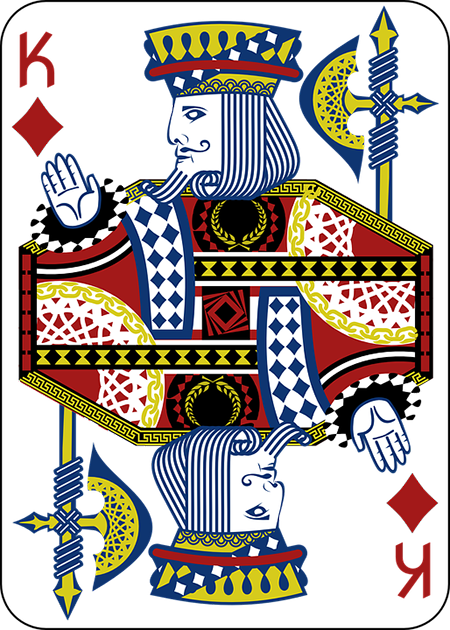
|
| « Articles | History of Playing Cards | Gallery of Playing Cards | Card Games Rules | CONTACT |
The Fascinating Early Origins of Poker
If we asked random people to name a single card game, we have a suspicion that poker would be the pick of choice for many. Known the whole world over, it's not only hugely popular amongst online players and casino attendees alike, but has inspired everything from R-rated derivatives such as strip poker to songs like the Lady Gaga mega-hit Poker Face.
Given this mass interest, however, it's surprising that its amazing origins are so little known. Shrouded in the annals of long-ago history, it's possible that poker dates all the way back to the 10th century! Let's take a look back to where it all began.
Ancient Origins

Source: Pixabay
When you head online with the intention of gaming, it's likely poker is your instrument of choice. 40 million of us - or 6.8 percent of the adult population - play regularly, and when you open up a Canadian online casino, you're not there to read. You're probably planning to take advantage of that attractive bonus you found on the internet, so it's hard to envisage your 1,000 years' dead counterpart once having done the same.
Admittedly, they probably weren't playing online (not unless they had a time machine), but you read those numbers right; poker has been around for about a millennium now. Historians believe the game we play today has ancient roots stretching all the way back to the 10th century. The most widely accepted theory is that poker can be traced to a domino-card game popularized by a Chinese emperor circa the 900s, although other experts suggest that it instead comes from a Persian game invented in the 16th century, known as "as nas".
However it began, we do know the game eventually found its way to Europe, with its closest definite predecessor being "poque". This card game, which gained popularity in the France of the 17th century, also had a German equivalent, "pochen". Both drew inspiration from a 16th century Spanish forerunner, "primero".. This game necessitated that three cards were dealt to each player, and bluffing was an integral part of its strategy.
Entering America

Source: Pixabay
Like most European customs of the time, colonists and settlers were responsible for introducing poker to the New World, and it was French immigrants in the New Orleans area who first brought poque to those who lived there.
Thanks to the Louisiana Purchase of 1803, which made the area part of the fledgeling United States, the game soon spread to English-speaking locals too, who anglicized its name to poker and incorporated many features of the modern game, such as five cards for each player and a 52 card deck.
From New Orleans, the game spread up the Mississippi River and beyond, becoming especially beloved by the riverboat crews who peopled the great waterways of America. By the Civil War years, soldiers in both North and South had also become enamored, paving the way for its popularity in the saloons and frontier settlements of the 1870s and 1880s.
From there on, the game's appeal spiraled, and poker was reintroduced to Europe in its new and improved form. It quickly became a global phenomenon and claimed its place as a mainstay of casinos the whole world over - a position it still enjoys today.
From the 9th century courts of China to the great gambling meccas of 21st century Las Vegas, poker seems to enjoy an eternal and inviolable lure. Long may its reign continue.
|
|
|
|